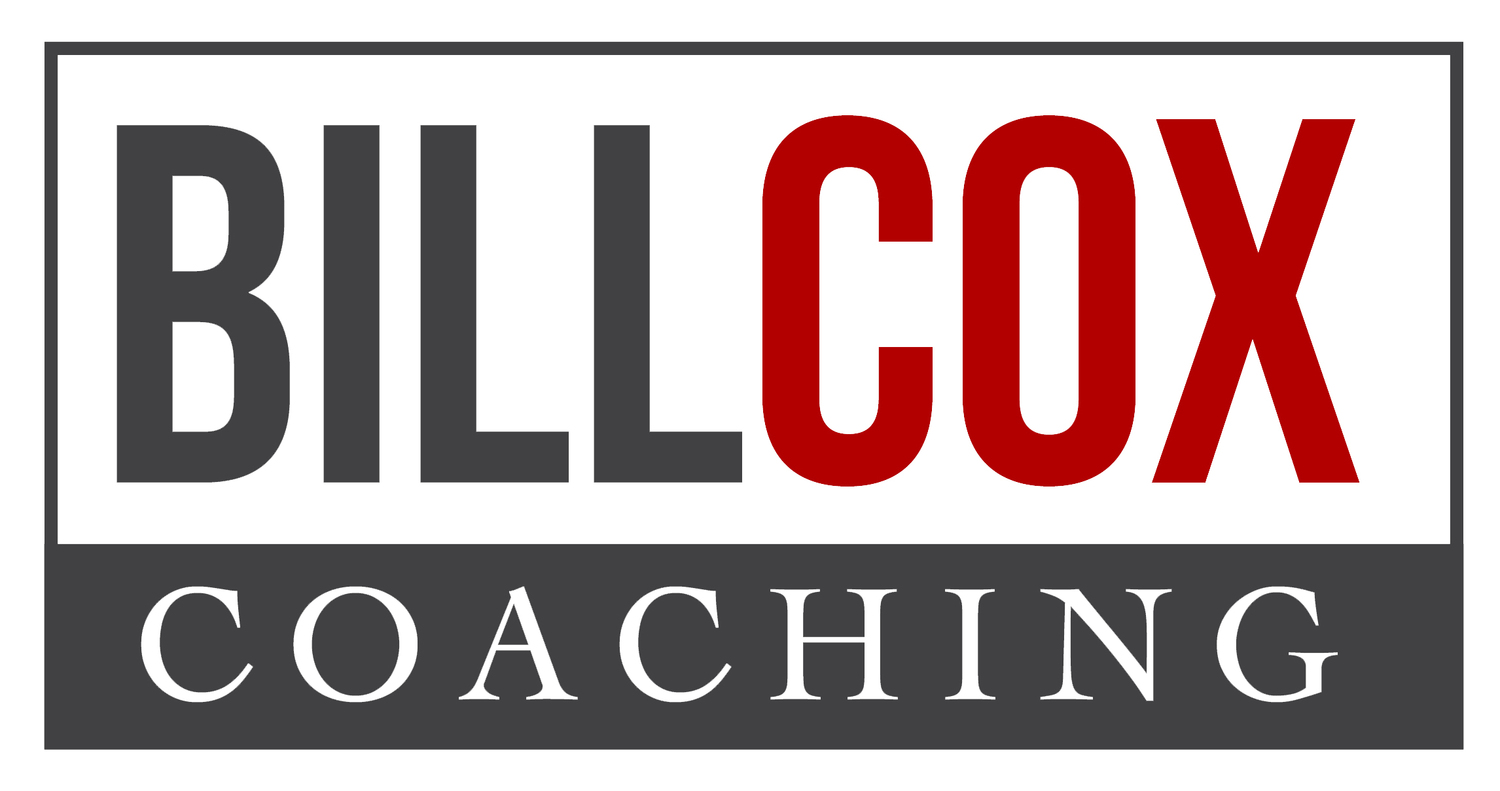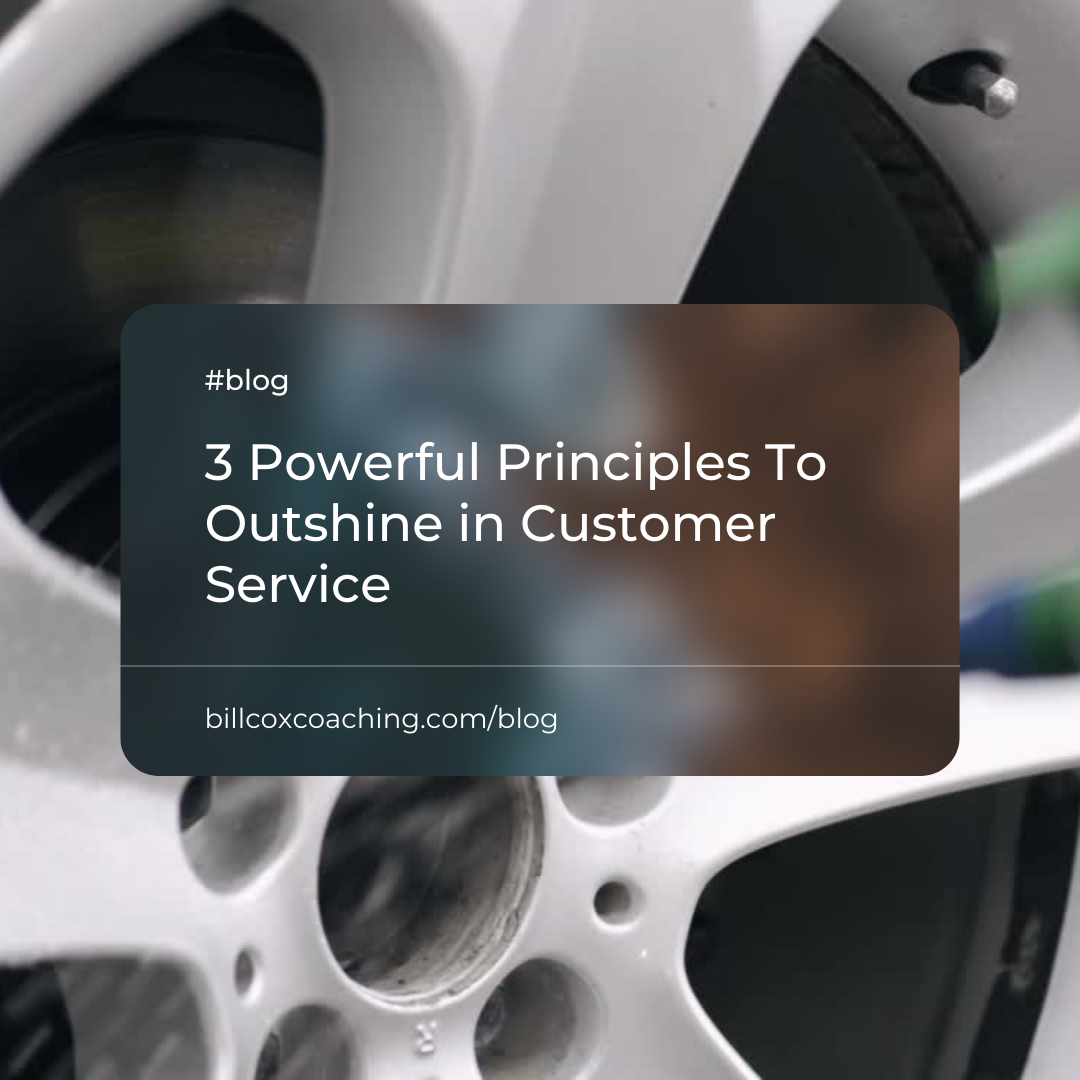When was the last time you saw exceptional customer service?
Recently, an inconvenience at my mechanic turned into a masterclass in customer service that I witnessed.
Let me explain…
My car needed an oil change, so I called my mechanic to book an appointment.
This mechanic has hundreds of customers, but he still called me by my first name when I walked in. (I didn't even know that we were on a first-name basis until then – but I enjoyed being known.)
We exchanged greetings, I handed over my keys, and his team got started. His tech promptly and professionally serviced my car, and I was back on the road again in time for my next appointment.
Everything went as planned – until it didn't.
Later in the afternoon, a small puddle of oil formed underneath my car. It was a few drips at most – but nothing too concerning. I wiped it up and moved on. By evening, the puddle had returned – still just a few drops, but enough to take note. The following day (you guessed it), more oil.
With frustration, I messaged my mechanic, who kindly and apologetically asked me to bring back the car.
When I arrived, I was greeted by name (again) and met with apologies for the inconvenience. He asked me to explain what was happening while he intently listened.
He then moved my car into the shop, diagnosed the problem, and invited me to join him on the shop floor to see what he had found. While escorting me to my car, he apologized (again) and introduced me to his technician, who explained the cause of the problem – and how his team was at fault. Both he and the technician apologized (again).
Afterward, they thanked me for returning to get this problem remedied and affirmed that I had done the right thing. He even gave me a certificate to get my car professionally cleaned at a nearby retailer.
I had never been so grateful for how an inconvenience turned into a big win. In addition, I was amazed at the level of customer service throughout this experience. As I reflect, three lessons in exceptional customer service stand out to me.
First is the power of using a first name. Your name is unique – it is part of your identity – and it is one of the first gifts you give to someone. Names are to be handled with care. To an extent, how someone handles your name reflects the value they place on you. Will you be acknowledged as YOU – or just another person in a sea of people? Not only was I greeted by name, but so were many others who came to the shop as I waited for my car (both times). Names are a big deal to this mechanic because each customer matters to him individually. So how do you handle someone's name when they gift it to you? Do you treat it with care? Do you show value to others by remembering and acknowledging them? To answer the age-old question: "What's in a name?" There is MUCH in a name, and we'd do well using first names often and respectfully.
The second lesson is this: always be kind and willing to understand. There was no point in this interaction that this mechanic didn't express kindness. He was gracious from start to finish in how he treated me, spoke to his employees, and treated other customers in the shop. The truth is, we're always listening. You and I both know that. We pay attention to every interaction when stepping into new environments – not just the exchanges directed at us. We notice how people are talking to others – and how they're being talked to. At no point did an unkind or thoughtless word surface from this mechanic, his employees, or anyone in the shop within earshot. Instead, this mechanic demonstrated (and championed) a culture of kindness, listening, and understanding. Leader, what kind of culture are you championing in your organization? What do your customers or clients hear when they step foot on your campus? Are you cultivating an environment of kindness and a willingness to listen and understand? The world is listening – and your kindness and willingness to listen and understand speak volumes about the culture and character of your organization.
Finally, the third lesson is this: go the extra mile to make things right. Excellent customer service always goes above and beyond to ensure satisfaction. Truthfully, all I wanted from the mechanic was to stop the oil from dripping. He could have solved my car's problem, and I would have been satisfied. But he went above and beyond to turn me from a customer into a raving fan. He did this by using my name, listening to me, treating me with dignity, inviting me to see the problem firsthand, explaining what he would do to fix it, and giving me a gift for my inconvenience. After my mechanic fixed the problem and handed me the keys, I thanked him for his excellent service. He responded, "It's not just what you do, but how you do it." What a statement! And I believe he believed it. Frankly, he lived it. I could tell that he loved his job. He enjoyed repairing broken things and making them better. And he did this not just with cars – but with my fear that excellent customer service was a dying ideal. So, leader, what is your response to unhappy clients? How do you treat your team when they make a mistake? How do you work to exceed expectations in difficult situations? By using the resources at your disposal to go the extra mile, you can turn dissatisfied customers (or employees even) into raving fans.
Sometimes great lessons come from unexpected situations – and I'm grateful for the inconvenience that taught me these lessons in excellent customer service:
There's power in using someone's first name
Always be kind and willing to understand
Go the extra mile to make things right.
Remember, "It's not just what you do, but how you do it."


